BELTONE HEARING CARE
At Aikontech Hearing, we use the precise, multi-step Beltone process that helps us get to know you and personalize your hearing care. During your office visit, you’ll receive professional, prompt service focused on you.
The following steps will give you an idea of what to expect:
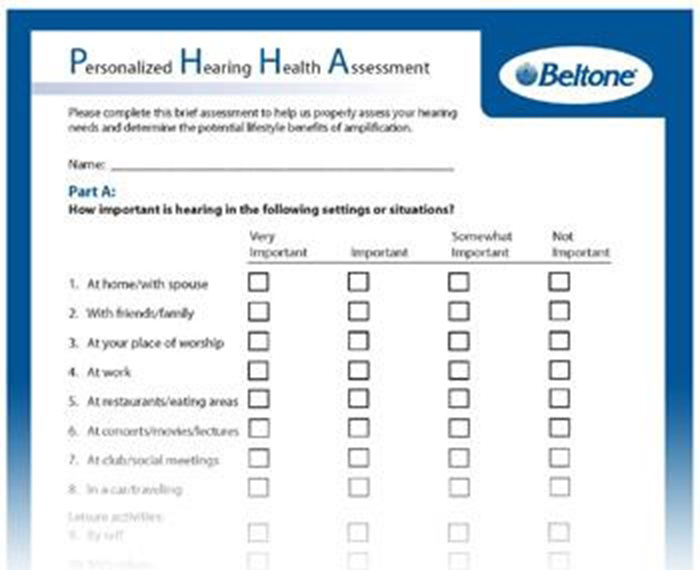
1. Lifestyle assessment
Understanding more about your lifestyle and hearing priorities helps us provide individualized care. Are you outdoorsy? Do you frequent restaurants and public places? Do you enjoy television, music, movies and lectures? Do you work every day? All of these things and more play into the kind of hearing aids right for you. Answering a few short questions on the Personalized Hearing Health Assessment (PHAA) will get the conversation started.

2. Your health and hearing health history
Many people are surprised by how much our overall health—and the medications we take—can impact our hearing. Several common conditions can adversely affect our ability to hear. For example, high blood pressure, diabetes and kidney disease are all linked to hearing loss. Similarly, understanding your hearing history gives us a window into your ability to hear today.
Some typical questions about your hearing may include:
- Is there hearing loss in your family?
- Are one or two ears affected?
- Were you subjected to chronic loud noise during your life?
- Do your ears ring?
- Do you have dizziness or vertigo?
- Did you have ear infections as a child?
- Do you have ear pain?
- Is it harder to hear the voices of men, women, or children?
- Do you notice environments where it’s challenging to follow the conversation?
At this time, you will also be asked about any medications you take. This is important because many prescription and over-the-counter drugs are ototoxic, or harmful to your hearing. This is also the stage to mention anything else that relates to your hearing.
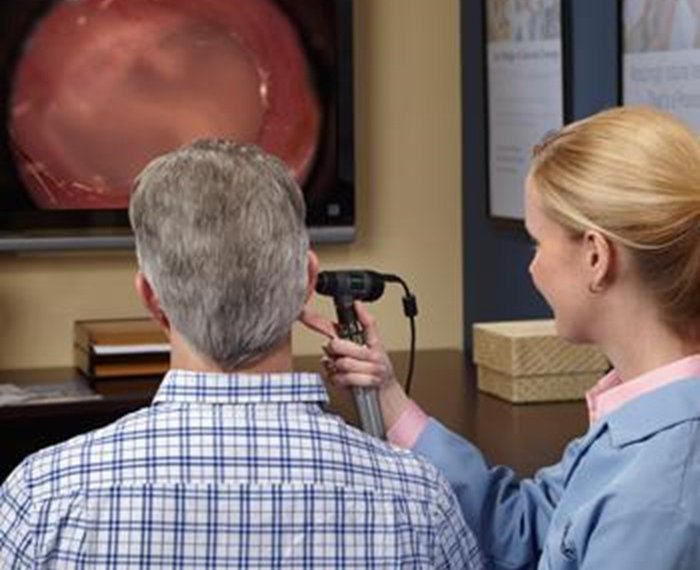
3. Hearing evaluation
A hearing “test” actually includes several tests that measure how well you hear a variety of sounds, such as tones and speech. A baseline hearing screening is recommended at age 50, unless you’re experiencing symptoms of hearing loss sooner.
Your Beltone hearing care professional will guide you through the steps of a thorough hearing evaluation, including:
- A visual examination of your ear using an Otoscope
- Air and bone conduction testing
- Word discrimination testing
After your evaluation, we’ll show you your results on an audiogram. An audiogram provides a visual representation of the sounds you’re hearing and the sounds you’re missing.
All Beltone practitioners strictly adhere to all national and local regulations regarding hearing instrument dispensing protocols, and follow nationally accepted testing guidelines set forth by the American Speech Language Hearing Association, the American Academy of Audiology and the International Hearing Society.
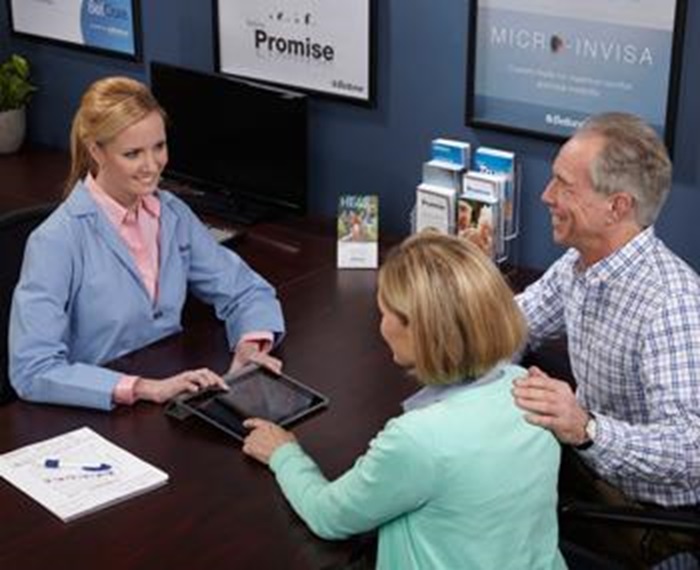
4. Hearing test results
After your hearing evaluation, your Beltone hearing care professional will review your results on an audiogram. An audiogram is a visual representation of how well you are hearing.
Hearing loss takes many forms. Some of us start missing sounds in the higher ranges, such as the voices of women and children. Others hear quite well in quiet surroundings, but struggle in noisy environments.
Your audiogram shows you where you’re hearing normally, and where you’re missing sounds. Once you and your Beltone hearing care professional discuss your audiogram results, and review your lifestyle and hearing goals, he or she can provide you with an in-office hearing aid demonstration of the hearing aids right for you, should hearing aids be prescribed.
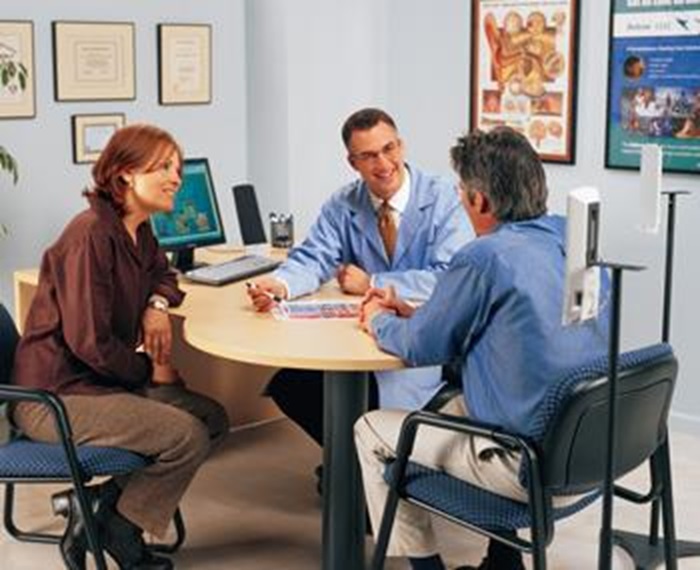
5. Hearing aid demonstration
If a hearing loss is found, and hearing aids are recommended, you can “try before you buy” at Beltone.
We’ll show you the many styles of hearing aids right for you. You can try on actual hearing aids and take a “test drive”. That includes our latest Beltone hearing aids.
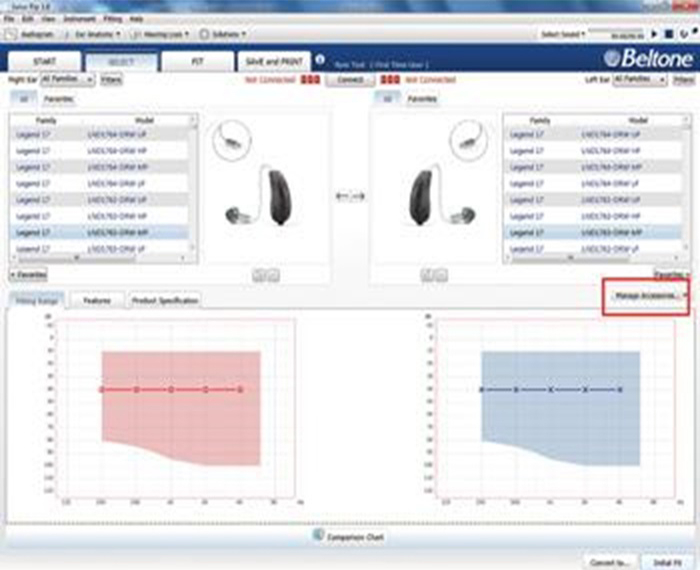
6. Fitting your hearing aids
Hearing your best is a personal matter. That’s why the fitting process is interactive at Beltone. When we fit your new hearing aids, your thoughts and feelings guide the process, and your input shapes the outcome.
Based on your audiogram results, your Beltone professional will program your hearing aids to your specific hearing loss using our proprietary Solus™ fitting software. This software is patient-focused and allows you to be a pivotal part of the process.
Solus was designed to help your hearing care professional:
- Show you pictures of a variety of Beltone hearing instruments from which to select
- Recommend specific environmental programs based on your lifestyle needs
- Program and adjust your selected instruments based on your specific hearing loss
- Review and save all settings for follow-up visits
During the fitting process, we also review the many features your Beltone hearing aids offer to make your listening experience second to none. Adjusting to your new hearing aids can happen the moment you put them on, or take a few days.